After 2024 that we had, it’s no wonder so many people are starting to adopt more outdoor hobbies. Not only is spending time in the great outdoors the ultimate way to stay socially distanced, but it’s great for getting fit and staying healthy.
There are plenty of outdoor hobbies to choose from for a boost in health, and one of the most unique ways to spend time under the sun is by rock climbing. Rock climbing – sport climbing, bouldering, trad climbing, free solo climbing, etc. – is an amazing way to get fit, build muscle, get social (while also social distancing), and have fun.
Learn about all the benefits of rock climbing here, and don’t be surprised if you’re convinced to start a new outdoor hobby!
Contents
1. Rock Climbing Builds Muscle
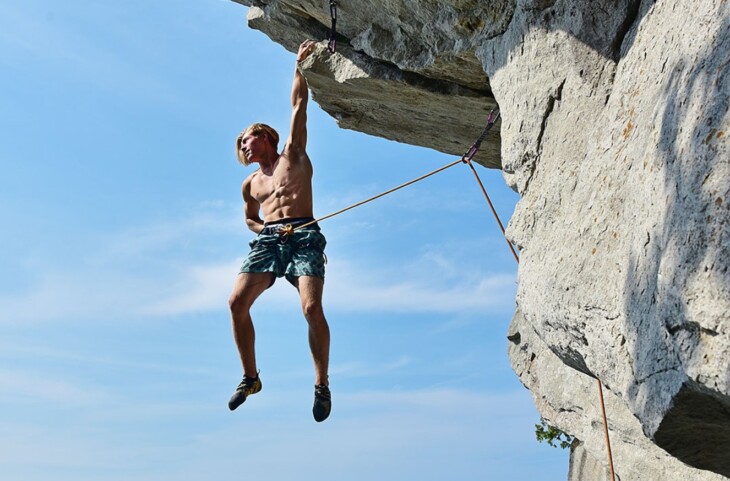
Source: Training For Climbing
If you’ve ever taken a look at an avid rock climber’s forearms, you’ll completely agree with this first benefit. Rock climbing on the reg without-a-doubt builds muscles, and we’re not just talking about upper body muscles.
Yes, the upper body comes extremely toned and taut by climbing, but this is a full-body workout, so you can count on the lower body to become stronger, too. Here’s a complete list of the muscles rock climbing targets:
- Arms – This one is a no-brainer, and it’s no surprise that your forearms, shoulders, and the rest of your upper body will get an intense workout.
- Legs – The upward motion that goes along with rock climbing challenges the lower body in a lot of ways. Without your legs, it would be really difficult to proper yourself up the rock wall.
- Glutes – Just like you need your legs to propel yourself upwards, the same goes for those gluteus maximus muscles.
- Back – The muscles of the back, like the rhomboids, trapezius, and lats, are an essential element to successful climbing.
- Core – Rock climbing requires a constant engagement of the core. In order to hold yourself close to the rock wall, the core muscles have to stay tight.
2. Rock Climbing Builds Endurance
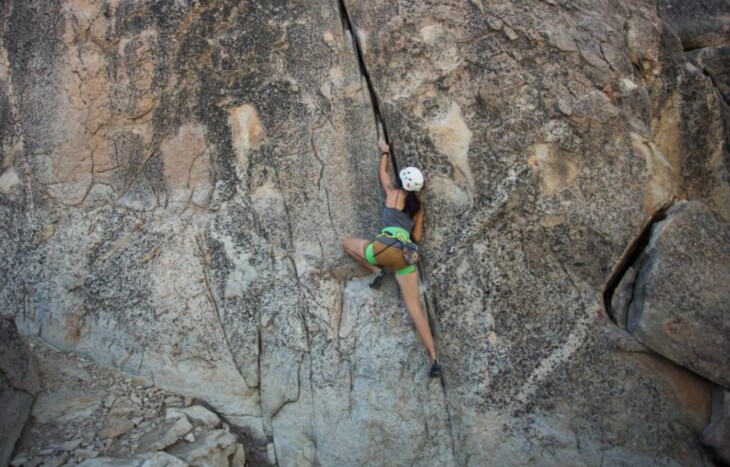
Source: Mountain Knowhow
In addition to strength building, rock climbing has also been proven to build overall endurance. In just one hour of rock climbing, it’s possible to burn more than 700 calories. So no wonder most rock climbers are in such good shape!
This is considered a “high intensity” sport, and all that intensity translates to greater endurance, both on and off the wall. You can expect your heart rate to fluctuate between 120 and 180 beats per minute.
To top it all off, rock climbing has the potential to improve flexibility. Who needs yoga when you can stretch out your hamstrings, glutes, hip flexors, and more by executing tricky maneuvers while climbing?
3. Rock Climbing Is a Stress Reliever
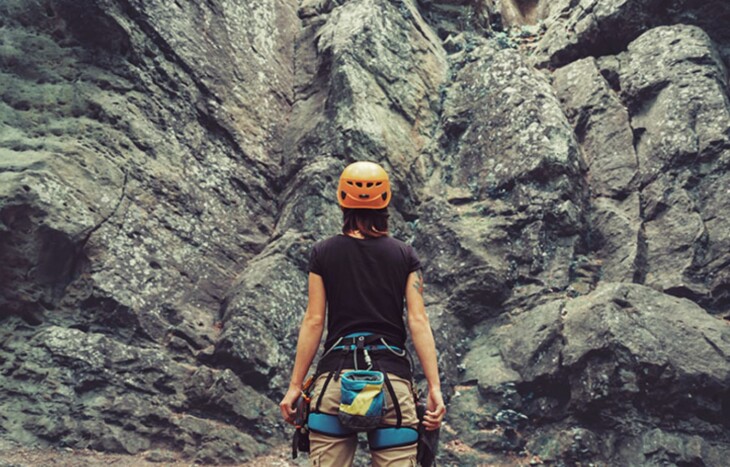
Source: Bill Jackson’s
Many outdoor sports have the ability to melt stress away, and rock climbing is no exception. Exercise in general relieves stress because it helps the body build endorphins, specifically norepinephrine. That’s why exercise is recommended to treat clinical depression.
This chemical works to help the brain find better balance while responding to stress and rock climbers have plenty of norepinephrine to go around. Many climbers say that they feel a sense of ecstasy or euphoria as they climb, and that’s all thanks to the increase in endorphins that goes hand in hand with exercise.
But it’s not just norepinephrine that acts as a stress reliever in this scenario. Spending time outdoors in fresh air under the sun can reduce stress all on its own, especially when you consider the stunning scenery that often comes along with rock climbing destinations.
4. Rock Climbing Allows You to Experience New Environments
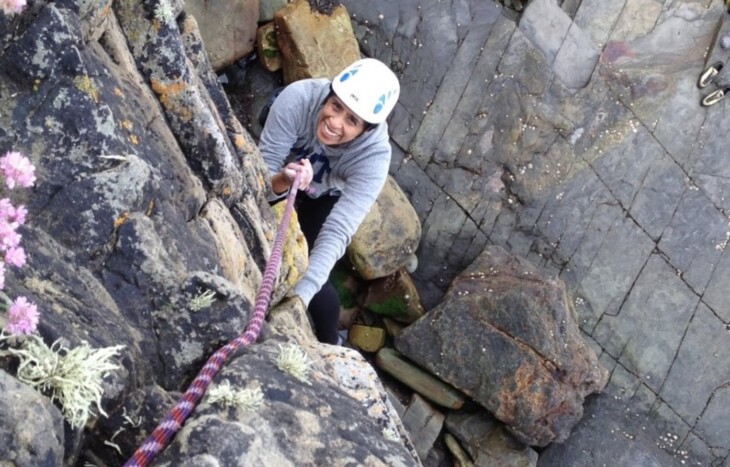
Source: Carraig Climbing
Rock climbing allows you to experience a new hobby, plus, it opens the door to check out new environments. There’s no denying that experiencing new things can positively impact health. Introducing new experiences into your life keeps things interesting, and better yet, it keeps your brain sharp.
Let’s say for example you sign up for a trade climbing tour through 57Hours.com, a popular provider of adventure tours around the country. Embarking on this tour will allow you to experience a new activity, surround yourself with new faces, and check out new places.
Once you get serious about climbing, you’ll have plenty of options when it comes time to plan your next rock climbing excursion. Some of the most beautiful national and state parks around the nation offer up the opportunity to climb, so this is the perfect way to check out new environments to better your well-being.
5. Rock Climbing Teaches Valuable Life Skills
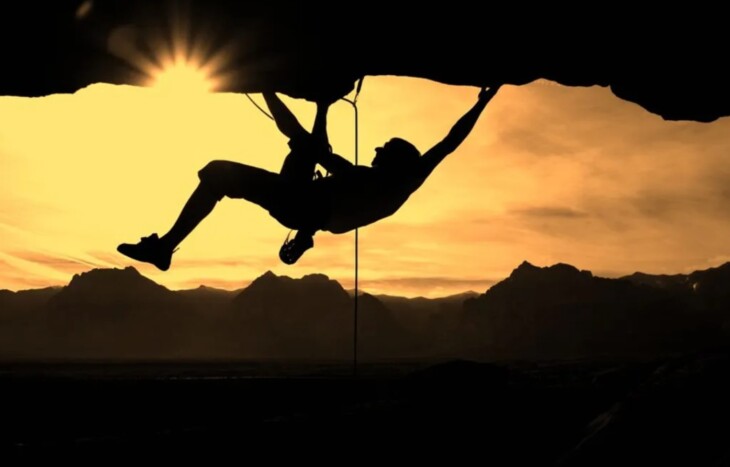
Source: The Odyssey Online
Even if you don’t realize it while you climb, there’s a very good chance that you’ll be learning (or at least brushing up on) important life skills. Climbing can teach you how to focus, manage stress, and even overcome fear.
There have been numerous studies to support this, and one study from 2009 even found that children with special needs can learn a lot from indoor rock climbing. The findings state that “children’s self-efficacy and belayers’ ratings of children’s efficacy improved significantly.”
6. Rock Climbing Promotes Brain Function
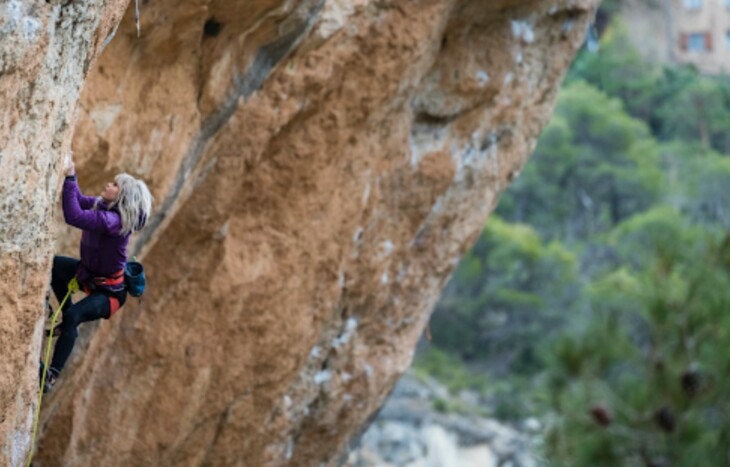
Source: Time to Climb
Just like a game of chess, rock climbing is all about looking ahead and considering the next move. There are actually quite a lot of problem-solving skills needed to conquer a rock wall and the brain always needs to be working.
So for the next climbing trip you plan, don’t expect to turn your brain off, you’ll actually need to do just the opposite! While you build muscle, relieve stress, experience a new environment, and learn valuable life skills, you’ll also be boosting brain power.
